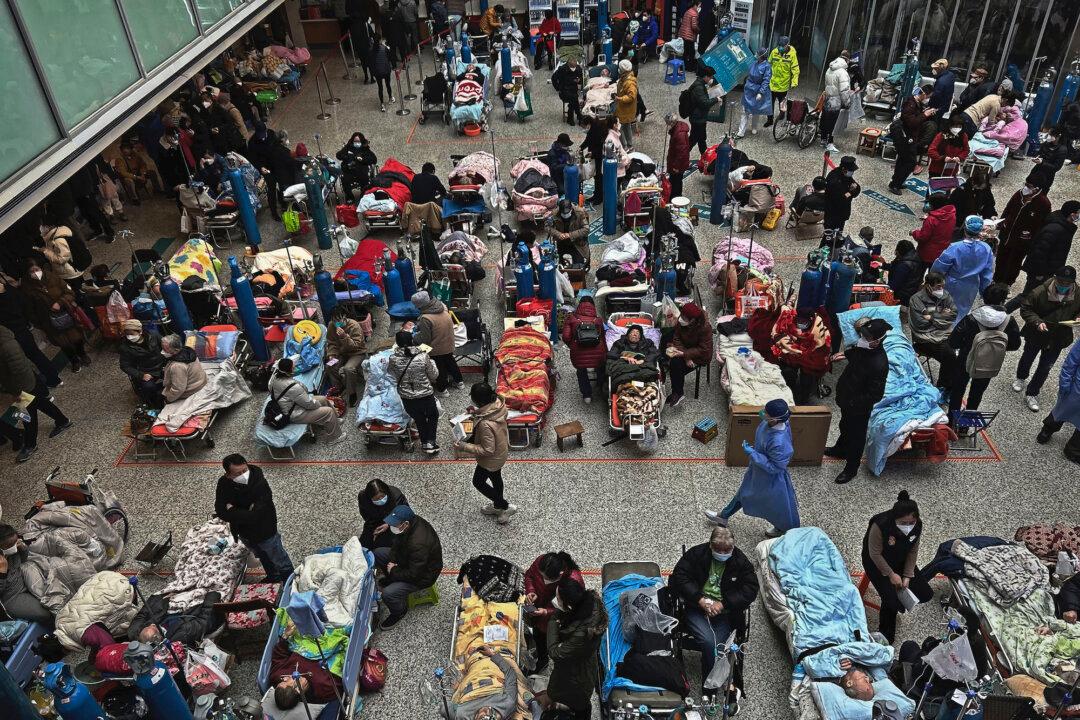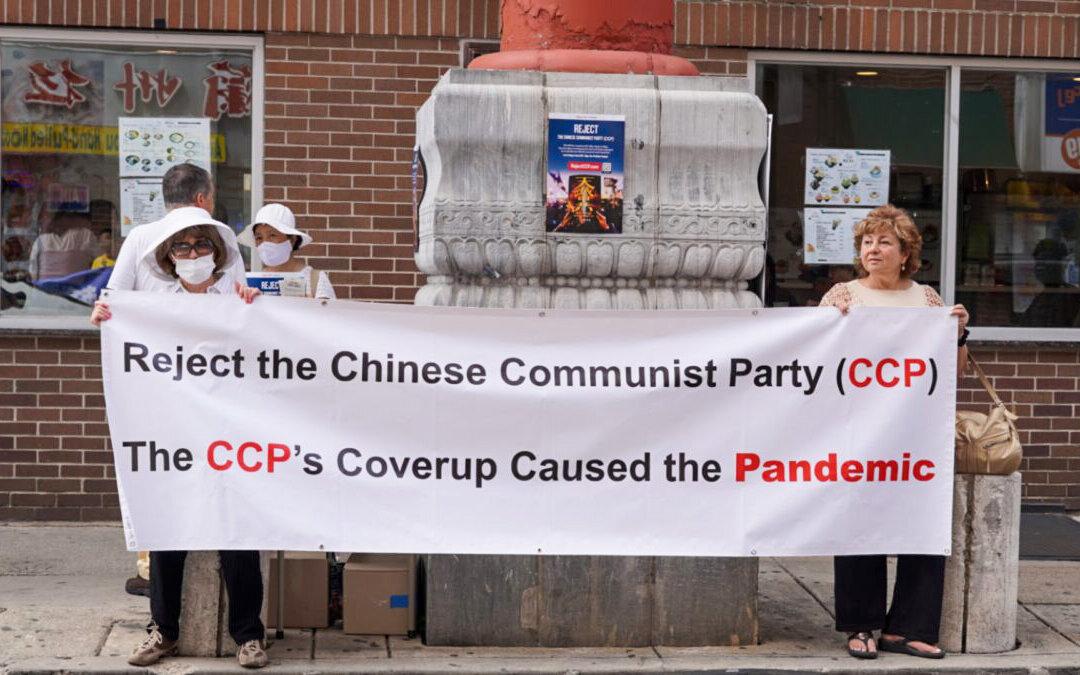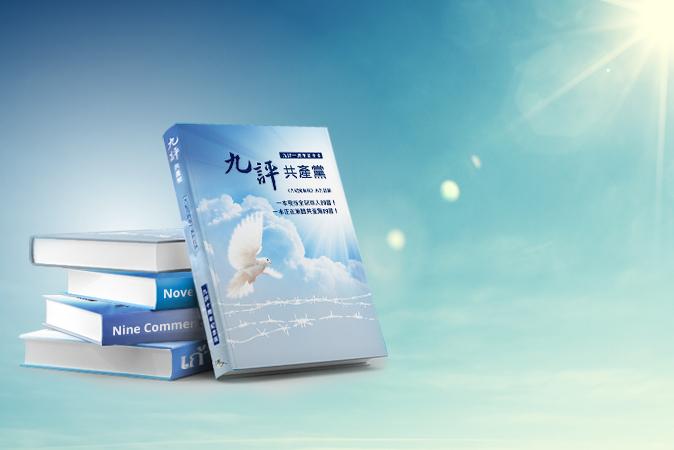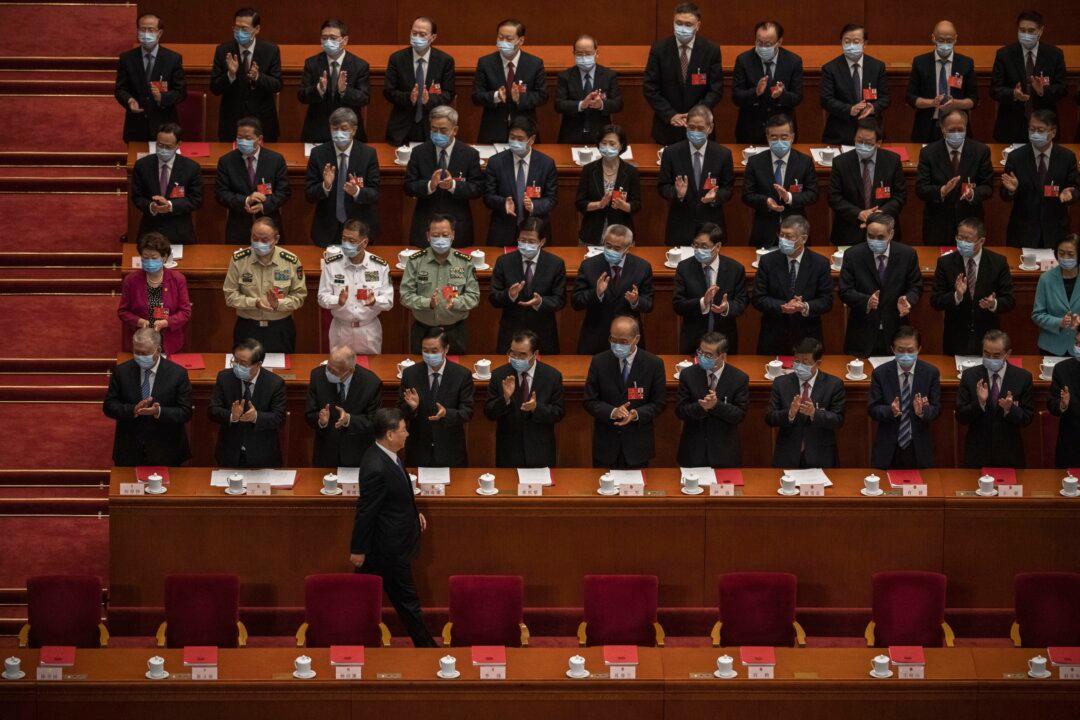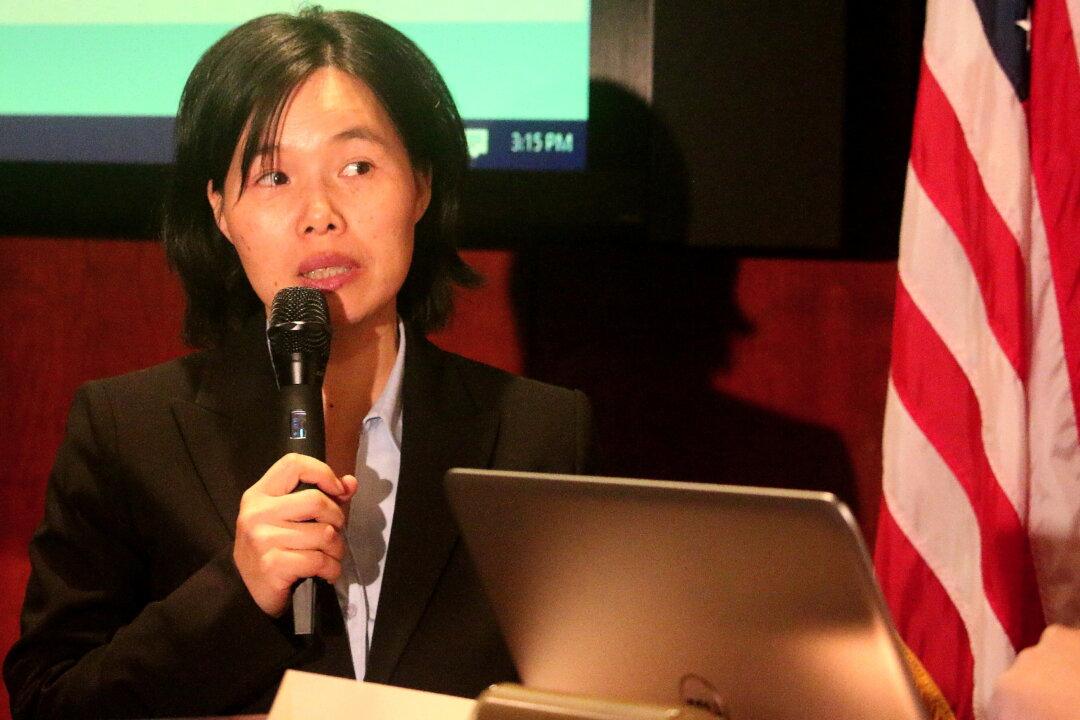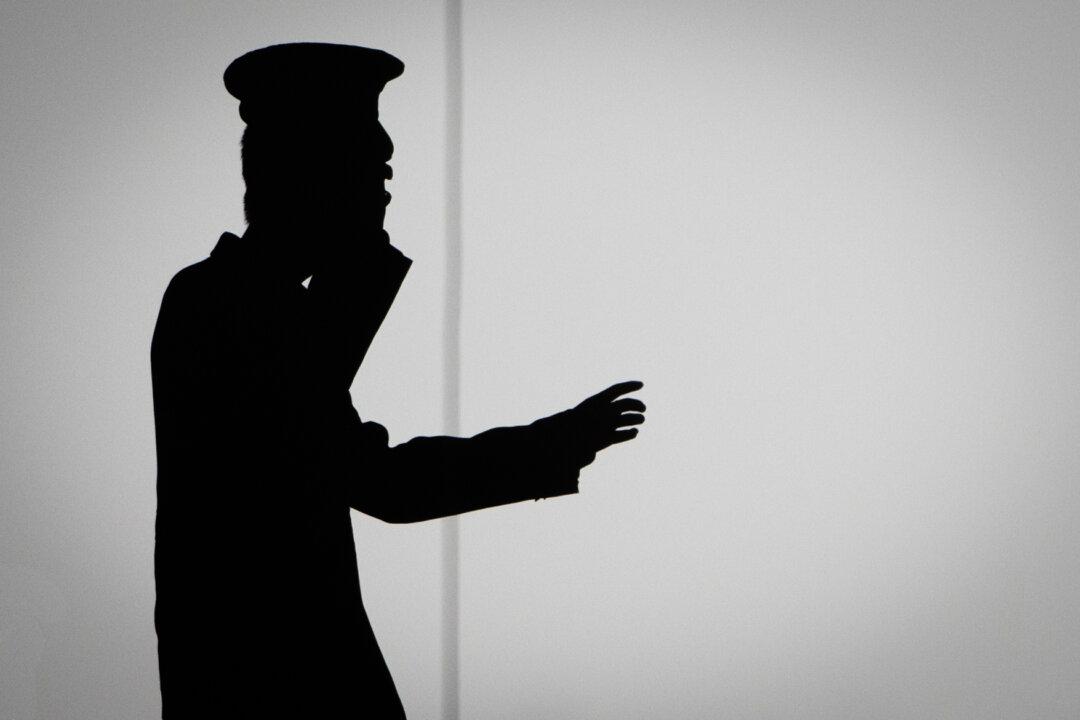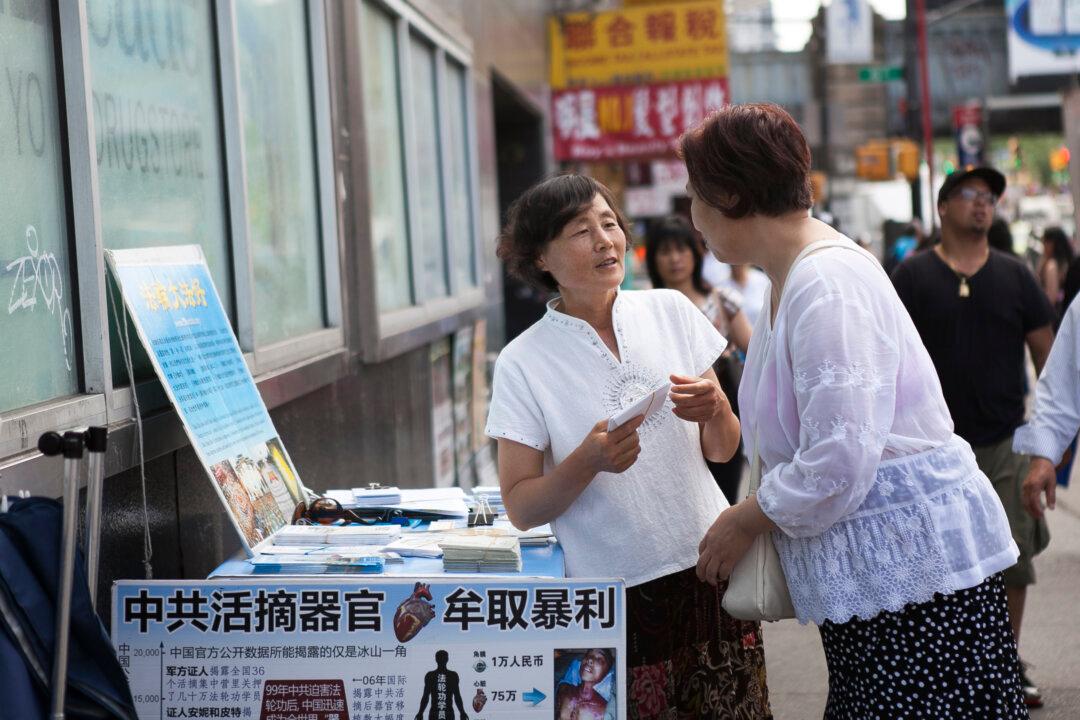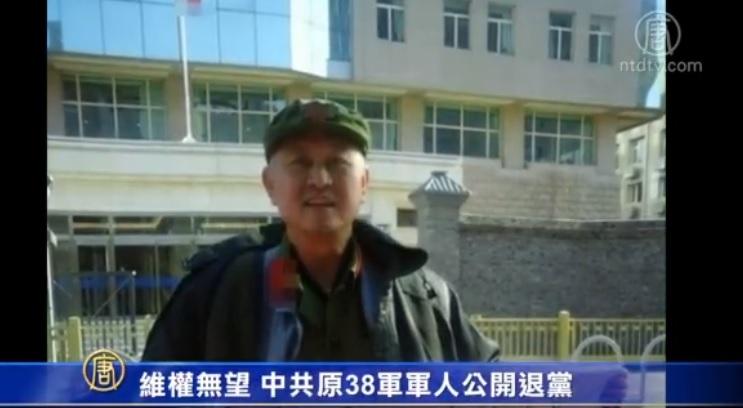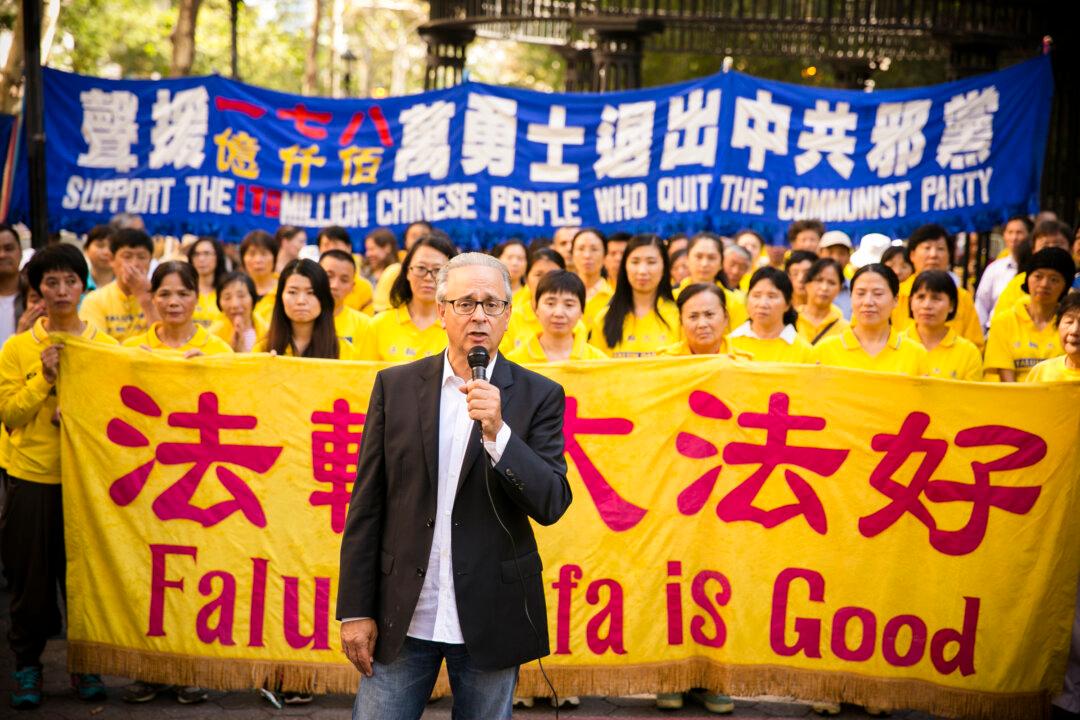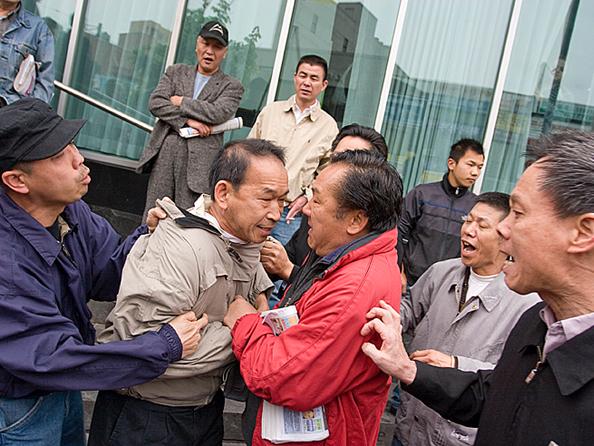Focus
Quit the CCP
LATEST
Aide to High-level Chinese Communist Official Quits the Party
Despite his years of enjoying the CCP’s lavish treatment, Wang’s brother-in-law knew all too well the evils of the Party and he sincerely wished to be rid of any affiliation with it.
|
Capitol Hill Forum Discusses Persecution and Torture of Falun Gong, Demise of the CCP
Dec. 10 was the 65th anniversary of International Human Rights Day, the day set aside by the United Nations to commemorate the signing of the Universal Declaration of Human Rights. A forum focused on China was held on Capitol Hill to mark the occasion.
|
Telephone Marathon Into China Targets Persecutors
Tuidang—meaning “quit the Party” in Chinese—as of April 14 had attracted 200 million signatories.
|
What Is ‘Tuidang?’
Tuidang, or “Quit the Party,” is the largest grassroots movement in history: It’s helped 200 million Chinese people renounce their ties to the Communist Party
|
After 10-Year Battle Against Corruption, Chinese Veteran Quits the Party
In his youth, he protected his homeland as a soldier in China’s military. Now, illegally laid off from his work, he has no home, and begs for food on the streets of Beijing with a sign explaining his misery.
|
Anything for Power: The Real Story of China’s Jiang Zemin – Chapter 22
Jiang Zemin’s days are numbered. It is only a question of when, not if, the former head of the Chinese Communist Party will be arrested. Jiang officially ran the Chinese regime for more than a decade, and for another decade he was the puppet master behind the scenes who often controlled events. During those decades Jiang did incalculable damage to China. At this moment when Jiang’s era is about to end, Epoch Times here republishes in serial form “Anything for Power: The Real Story of Jiang Zemin,” first published in English in 2011. The reader can come to understand better the career of this pivotal figure in today’s China.
|
Rally Near UN Calls for End to Persecution of Falun Gong
Falun Gong practitioners from the greater New York area gathered together near the United Nations on the Dag Hammerskjold Plaza on a sunny Saturday afternoon to hold a rally calling for an end to the persecution of their spiritual practice in China.
|
Facing Discrimination in NY, Chinese Stand for Persecuted Faith
At the end of the No. 7 subway line going into Queens is Flushing, the birthplace of religious freedom in America. It’s a place where the colorful banners of Chinese signs decorate the buildings, and where whole cooked geese hang in window displays. It’s a place where history is repeating itself.
|
Aide to High-level Chinese Communist Official Quits the Party
Despite his years of enjoying the CCP’s lavish treatment, Wang’s brother-in-law knew all too well the evils of the Party and he sincerely wished to be rid of any affiliation with it.
|
Capitol Hill Forum Discusses Persecution and Torture of Falun Gong, Demise of the CCP
Dec. 10 was the 65th anniversary of International Human Rights Day, the day set aside by the United Nations to commemorate the signing of the Universal Declaration of Human Rights. A forum focused on China was held on Capitol Hill to mark the occasion.
|
Telephone Marathon Into China Targets Persecutors
Tuidang—meaning “quit the Party” in Chinese—as of April 14 had attracted 200 million signatories.
|
What Is ‘Tuidang?’
Tuidang, or “Quit the Party,” is the largest grassroots movement in history: It’s helped 200 million Chinese people renounce their ties to the Communist Party
|
After 10-Year Battle Against Corruption, Chinese Veteran Quits the Party
In his youth, he protected his homeland as a soldier in China’s military. Now, illegally laid off from his work, he has no home, and begs for food on the streets of Beijing with a sign explaining his misery.
|
Anything for Power: The Real Story of China’s Jiang Zemin – Chapter 22
Jiang Zemin’s days are numbered. It is only a question of when, not if, the former head of the Chinese Communist Party will be arrested. Jiang officially ran the Chinese regime for more than a decade, and for another decade he was the puppet master behind the scenes who often controlled events. During those decades Jiang did incalculable damage to China. At this moment when Jiang’s era is about to end, Epoch Times here republishes in serial form “Anything for Power: The Real Story of Jiang Zemin,” first published in English in 2011. The reader can come to understand better the career of this pivotal figure in today’s China.
|
Rally Near UN Calls for End to Persecution of Falun Gong
Falun Gong practitioners from the greater New York area gathered together near the United Nations on the Dag Hammerskjold Plaza on a sunny Saturday afternoon to hold a rally calling for an end to the persecution of their spiritual practice in China.
|
Facing Discrimination in NY, Chinese Stand for Persecuted Faith
At the end of the No. 7 subway line going into Queens is Flushing, the birthplace of religious freedom in America. It’s a place where the colorful banners of Chinese signs decorate the buildings, and where whole cooked geese hang in window displays. It’s a place where history is repeating itself.
|

